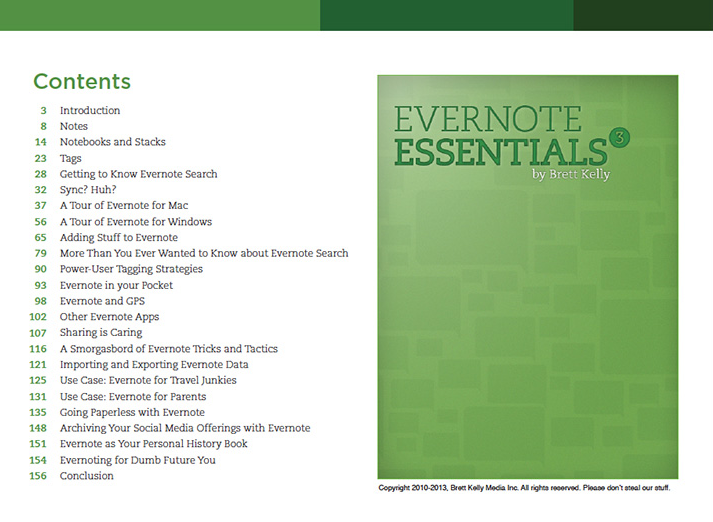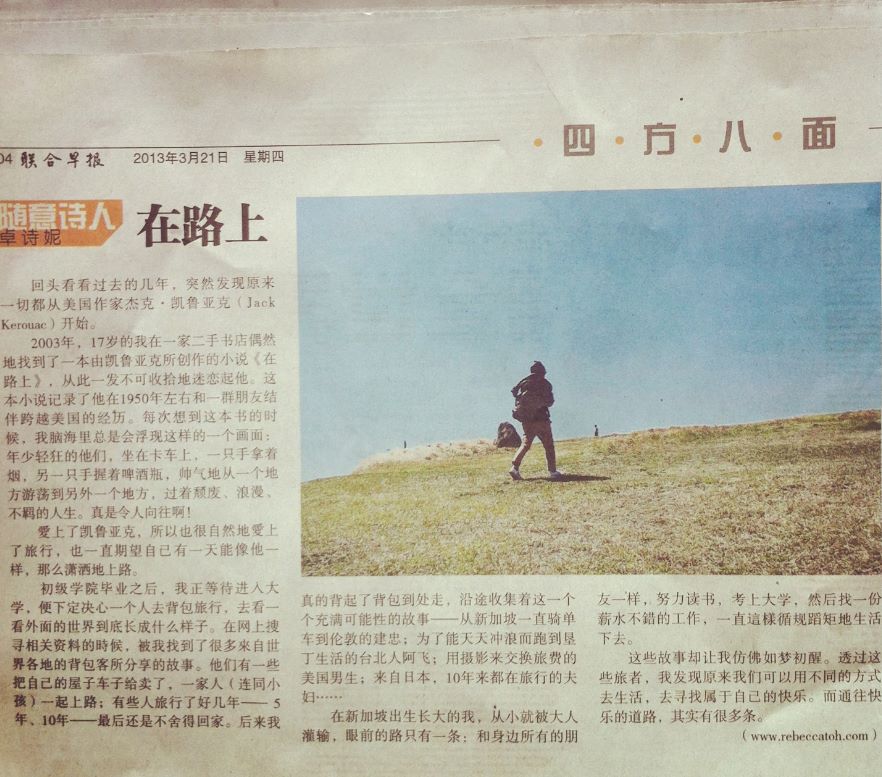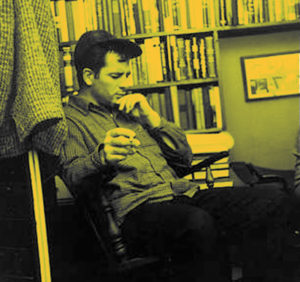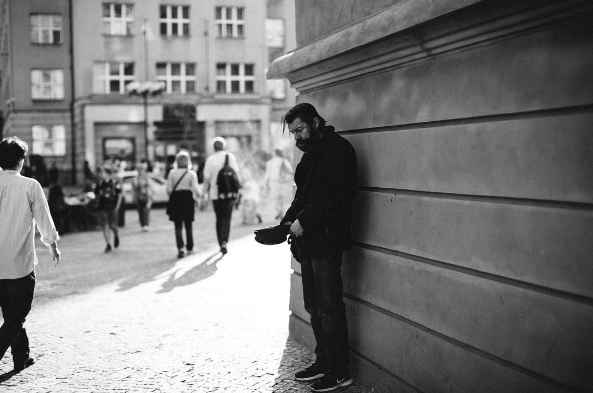The rat race sucks. It really does. Especially if you desperately don’t want to be in it.
Don’t make the mistake though of thinking you can never get out of it. You can – if you want it enough.
I don’t have a full-time job and haven’t had one in the last 10 years (except for 6 months in 2009, when I got a 9-5 job so I could test whether I was indeed allergic to it. It turned out that I was!).
I don’t ever intend to have one again.
My life goal is to always make a living on my own terms.
When I first started out on this whole “no full-time job for me” journey, I remember thinking to myself, “By hook or by crook, I am going to make this happen.”
And so it has. Today, I make a living by selling my creativity as a freelance photographer. Companies and brands pay me to take photographs for them, which they then use to sell their products.
The main perk of making a living on my own terms is FREEDOM.
Freedom to wake up anytime I want (on non-photoshoot days, at least), travel whenever I want (since I make my own schedule); freedom to work from home, or indeed anywhere at all; freedom to chart my own path in life, etc.
It’s of course not always a fluffy life and comes with its challenges, but I accept them as a natural part of this freelance life. I am not bothered by its unpredictability, nor am I fazed by its ups and downs – I accept them as a just price to pay for this sweet freedom.
Step 0: Decide that you want this and commit to making it happen
If you are reading this article, I assume this is a life that you want.
But before you read on, I want to say: Only people with a never-say-die spirit need apply.
If you are prone to giving up and doing easy things for your short term happiness, and are not willing to work hard for your long term fulfillment and success, close this window now. This piece is not for you.
But if you are not the sort to give up easily, then welcome to the club! Welcome to a life of sweet freedom that is also peppered by hard work and seemingly-insurmountable obstacles. But ultimately – trust me – there is no other way to live.
Step 1: Cultivating the right success mindsets
(A) Congratulations. You have a never-say-die spirit. You are going to go far because you are not good at accepting things for what they are. You have a dream and you will fight to make it happen. You don’t saddle yourself down with excuses like, “Oh, it’s time to stop dreaming, not everyone is lucky enough to be able to quit their jobs and do what they like.”
(B) Newsflash: Every successful person is a dreamer. Jack Ma is a dreamer. Elon Musk is a dreamer. Steve Jobs was a dreamer. We can’t all be Jack Mas and Elon Musks, but if we don’t allow ourselves to dream, we won’t even have a fighting chance. (Elon Musk is dreaming of bringing us normal people to space in the next few decades. No one is a bigger dreamer than him these days!)
(C) It’s not just about luck. Luck is the least important ingredient in success. Luck is winning $2 million in the lottery, but success is knowing the right things to do with that $2 million. Many lottery winners are lucky – most of them don’t end up successful.
(D) Hard work can create luck. Persistence can create luck. Saying yes and grabbing on to opportunities can create luck. Learning from your failures can create luck.
(E) The world is indeed big and scary but there is always a place for you. It’s not about conquering the world. Most of us are not going to be tycoons and superstars, but we do have the ability to conquer a small corner, build a small following, and make that corner our own little universe. In that little universe we can thrive and make our own living and live our own good life. There is a reason why, in the world of cheap furniture via IKEA, a small furniture brand like TRUCK in Japan can have such a strong cult following and become such a successful business.
(F) Don’t live in an imaginary prison of limiting beliefs. Don’t lock yourself in with the rules of society and throw the key away. There is more than one way to live. For example, you don’t need expensive equipment to become a good photographer; a $1,000 setup can do the job if you are good enough. Nor do you need to spend five years slogging as a photographer’s assistant before you are qualified to strike out on your own. Yes, these can work for some photographers, but they are not hard rules. So feel free to reject everything people tell you about anything – that includes this article right here. The only rule I follow is this: there are no rules, and anything is possible.
Step 2: What skill can you sell?
Now we come to the practical side of things.
If you want to not have a full-time job ever again, you need to find a way to sell something in exchange for money.
In a way, that’s all to it. What can you sell that people are willing to buy?
Since we are talking about becoming a successful freelance creative, we are talking about, specifically, skills.
Are you good at photography? Writing? Design? Making short films? Creating beautiful origami? Making plush toys? Drawing? Designing WordPress themes?
You might not be able to figure it out by merely thinking. Go and try doing it. See if you actually like it. Experiment, fail, try again. Rinse and repeat until you find that one skill you can sell for money.
If you think you are not good at any particular skill, go and become good at one. Borrow library books, find videos on Youtube. The Internet revolution is also an educational revolution. Nowadays you can learn anything for free, as long as you want to.
Pro tip: Remember, the whole point of quitting your job to do this is to be happy. You are not going to be happy doing something you don’t like. So the convergence of both passion and skill is important (you can’t just do something you are good at but don’t like, and you can’t just do something you like but are not good at).
Step 3: Save a year of expenses and quit your damn job
Some people make the mistake of pursuing their dreams with $0 in their bank. Don’t do that.
Most of you probably have a job right now. Don’t quit immediately. Save your salary radically – save enough so you can afford not to work for a year, if possible. That gives you the buffer to try and make your freelance creative life happen. It will also help save you all the stress and anxiety and despair and grief of being broke.
Once you have some savings, I suggest quitting your job as soon as possible, because a job is only a distraction. People think they can build their side hustle at night and during the weekends. That’s a delusion (not for everyone, but for most people). It’s the reason why many people fail to make a living as a freelance creative – they simply don’t have the time and mental capacity to go all in and devote enough energy to making their freelance creative life happen.
Pro tip: Don’t wait too long to start. Don’t spend 10 years trying to save enough money. Remind yourself that it’s also going to take time to build up your freelance creative life, so the earlier you can start the better. Once you quit, you can take on part-time jobs for additional income. That’s fine since it only takes up a small part of your time – the majority of your time should be spent hustling.
Step 4: Be so good they can’t ignore you
Cal Newport has written a classic book on this topic, but even if you don’t want to read the book, the idea itself is enough to inspire.
Yes, as we will find out later, being good is not enough. There are a lot of talented people who languish in obscurity (that’s where marketing comes into the picture), but yet if you suck at your craft…
Then why even pursue your craft at all?
Half the pleasure of making a living doing what you love is being good at it.
Furthermore, if you are terribly good at your craft, you will experience the Apple Phenomenon – their products are so good and so desirable people practically beg to buy them.
Pro tip: You don’t have to be the best in the world. But you need to be good enough. In other words, you cannot suck.
Step 6: Infuse your personality into your craft
Authenticity has become a buzzword nowadays. But it has never gone out of style. Just as with everything, realness attracts. By being true to yourself, you show the world that you are your own person. My favorite people on the Internet (who are also very successful – not by chance) are all super honest, quirky, and real.
That’s what separates you from the crowd.
Tweet or blog or Instagram or write copy or sell yourself in YOUR voice.
Whatever you do, don’t be cookie-cutter.
Step 7: Market yourself
Marketing is not just social media marketing.
A design studio that spends a year working on a travel guide as a side project and wins awards for it is doing marketing. When I started the photo project “Creative People + Projects“, I was doing marketing. Marketing is basically you allowing the world to know that you exist, and that you are good at doing this thing that you do.
When all else fails, don’t forget to ask for what you want.
Step 8: Build a network of relationships
No man is an island, and no freelancer, especially, is an island.
It’s important to build a network of relevant relationships.
In my industry, the people who give me jobs are photo editors, art/creative directors, designers, etc. To make sure they know I exist, I must find a way to appear in front of them. For instance, many of these creative types read magazines like Monocle and Wallpaper*. I must then try to shoot for these magazines – that’s how I give them the chance to see my work.
What really helped my career was also doing my photo project “Creative People + Projects“. I got many jobs from photo editors or art directors who said they found me through that project. And that’s because it’s the kind of project that naturally attracts the attention of creative people like them.
The beauty of growing a network of relationships is that one person can recommend your work to three of their friends, and each of these three can introduce to three more. If your work is good, word-of-mouth alone can help your network to grow exponentially.
All freelance creatives depend on this network. Build a strong one and you will never starve.
Step 9: Offer your services at a premium
Many freelance creatives fail because they charge too little for their services. So they end up not being able to feed themselves.
If you charge $20/hour for your work, you will get clients who have a $20/hour budget. But if you charge $400/hour for your work, you will get clients who have a $400/hour budget. Work less for more money. But provide true value. (Don’t be a fraud.)
Step 10: Know when to give up
By giving up, I don’t mean giving up on the dream of making a living on your own terms. But if something (say, becoming a singer-songwriter) is not working out for you after years of trying your best, maybe it’s time to give it up and move on to something else.
Perhaps, because of your experience in music, you also turn out to be a good producer. So now, instead of making your own music, you help other people produce their music, and in turn you get to earn a living and still be close to music.
This might actually allow you to find some unexpected happiness and fulfillment. (It’s not always about doing what you love – sometimes it’s about balancing doing something you kind of love with financial stability with a sense of purpose).
Step 11: Have no backup plan
Have no backup plan. Don’t tell yourself, “If I fail, I can always get another job.” No, you are not going to fail. And no, you are not going to get another job (because you will only be the same kind of miserable as you were the last time).
You are going to make it happen, no matter what.
Only when you have no backup plan will you not be tempted to fall back on it, and only then will you be literally forced into becoming successful (since your survival depends on it).
Take the example of Mark Wiens, the founder of the super popular Thai food blog eatingthaifood.com:
“… English teaching was not for me (it was a great experience, but teaching English is just not my passion).
But during that year, I set a personal goal that I would never teach again, and that I would find a way to make a living on the internet, so I could travel (and eat) and earn money at the same time.
It wasn’t easy.
Every spare moment I would blog and sit glued in front of my laptop until my eyes went crazy.
It took about 3 years of online work and experimenting before I really started making enough to live fully and support anyone other than myself.
But when you have a goal you’re working towards, you’ll do what it takes to get there.”
He didn’t stop until he made it happen.
Step 12: HAVE FUN!
To quit the rat race and make a living doing what you enjoy is more than just about not having to commute to work and being able to wake up anytime you want.
If you go deeper, it’s about living life to your full potential, stretching yourself and becoming the person you know you are deep down inside. When you live in connection with this true part of yourself, a whole new world is unlocked.
Being able to do what you are meant to do is a hugely positive thing not just for yourself, but also for this world. When your talents and creative energies and purpose align, wonderful things happen. Again, not just for yourself, but also for this world.
Most people never get there.
Don’t be most people.
And while you are it, don’t forget to enjoy yourself!
In summary
This is only a rough guide. There is no way anyone can tell you how to get from Point A to your destination. Every individual must find his own way through the thicket of confusion and fear.
But this article is meant to give you a much-needed kick in your ass.
It’s meant to open a door and show you that hey, there is a whole new world behind this door.
Go and explore.
Don’t be afraid!
And then come back one day to tell us about your adventures.











